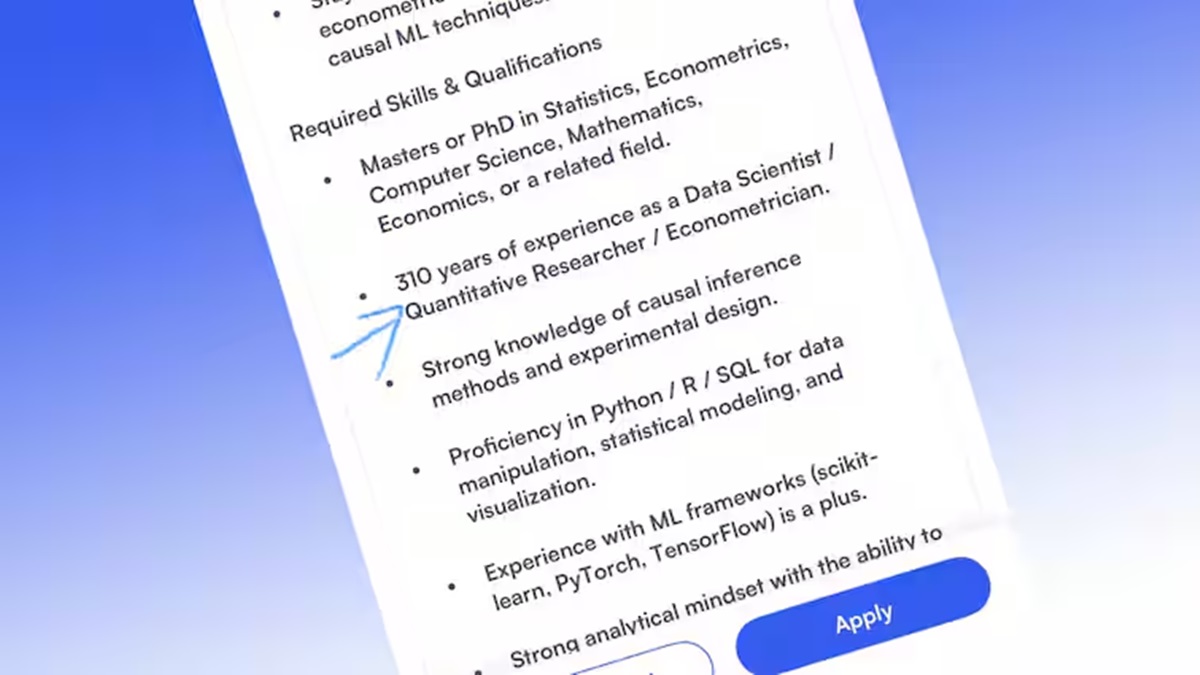Generation after generation, a university degree was seen as the default passport to a high-paying, secure career. But that assumption is now under scrutiny. Across industries – especially in tech and AI – employers are revaluating what truly signals talent and potential. It’s no longer about what’s on paper, but about what people can actually do.
For HR managers and business leaders, this is a critical moment. Traditional degree requirements are being replaced – or at least de-emphasised – in favour of practical skills, real-world experience, and adaptability.
Recent studies support this emerging trend. Forbes reports that 90% of companies adopting skills-based hiring experience fewer recruitment mismatches, while 94% say these hires outperform degree-based candidates.
Similarly, Resume Genius found that 65% of hiring managers are open to candidates who lack a formal degree but demonstrate key competencies – especially in soft skills such as communication and critical thinking.
Tech and AI are leading the way. The knowledge acquired during a four-year course can quickly become obsolete. According to The Times UK, job listings in Britain that no longer require a university degree jumped by 14.2% between 2021 and 2024, with major employers like Google and IBM actively dismantling the “paper ceiling”.
“A candidate could have the world’s most impressive educational background, but if they’re unable to communicate their own potential, think creatively to solve problems, work effectively with colleagues or even turn up on time for meetings, they’re not the right fit,” said Kevin Fitzegerald, UK managing director of Employment Hero.
Of course, degrees still matter in specific contexts – particularly in law, medicine, engineering, and government roles where formal qualifications remain essential due to legal or regulatory requirements. But even this may evolve.
A 2024 Harvard Business Review report, The Emerging Degree Reset, projects that 1.4 million jobs will soon open up to non-degree holders due to changing employer mindsets and persistent labour shortages. LinkedIn data supports this trend: one in five jobs now omits a degree requirement – a figure rising by 33% annually.
The cost factor: Re-assessing return on investment
This changing dynamic is also driven by cost considerations. Between tuition fees, living expenses, and lost earnings during study, the financial burden of a degree is substantial. Unsurprisingly, Gen Z is questioning whether it’s worth it.
A joint study by American Student Assistance and Jobs for the Future found that only 51% of Gen Z learners are interested in pursuing a four-year degree – down from 71% in 2020. Meanwhile, 74% now prioritise acquiring job-ready skills through alternative paths.
The pandemic, inflation, and ongoing cost-of-living pressures have only amplified this shift. In response, many students are opting for vocational training, community colleges, and online platforms that offer faster, cheaper, and more targeted education.
Forward-thinking employers are already tapping into this new wave of talent. Companies such as Apple and Tesla have publicly removed degree requirements from many of their roles, focusing instead on aptitude, motivation, and work ethic.
Here are some key alternatives gaining ground:
Professional certifications. Programmes from Google, AWS, Cisco, and CompTIA offer industry-recognised credentials in areas like cloud computing, cybersecurity, and project management – often completed in months rather than years.
Apprenticeships and vocational training. These earn-as-you-learn pathways align directly with employer needs and boast strong placement rates.
Bootcamps and associate degrees. Particularly in fields like UX design, software development, and healthcare support, bootcamps offer intensive, job-focused training and often include career support.
Self-directed learning. Online platforms such as Coursera, edX, and YouTube empower individuals to upskill independently. Combined with a strong portfolio, this route can be highly effective.
Military training. Often overlooked, military service provides robust training in logistics, engineering, and IT – alongside soft skills like leadership and discipline.
Widening the talent funnel
High-demand roles in sales, logistics, digital marketing, and customer support increasingly welcome candidates with non-traditional backgrounds, provided they can demonstrate performance potential.
Internally, this shift calls for updated development pathways. Organisations should promote career mobility based on skills and outcomes, not academic pedigrees. Providing structured upskilling and performance-based advancement opportunities helps retain high-potential staff and fosters a more equitable workplace culture.
Public perception is also evolving. According to a 2023 Pew Research Center survey, only 25% of U.S. adults believe a four-year degree is “very important” for landing a well-paying job today. Meanwhile, 49% think a degree is less important than it was two decades ago.
Cost plays a major role in these attitudes. Just 22% believe a degree is worth the cost even with loans, while 29% feel it isn’t worth it at all. Even among graduates, only one-third say the cost is justified.
Despite this scepticism, college graduates still enjoy higher average earnings and lower poverty rates. But that gap is narrowing. Recent data shows improving economic outcomes for non-degree holders, particularly in full-time employment and earnings growth. Notably, in 2023, 54% of workers aged 25–34 did not hold a four-year degree.
The upshot for employers?
It seems to be the moment to modernise hiring frameworks. Degree requirements may once have been a helpful filter, but they risk excluding valuable talent.
With the demand for skilled workers outpacing supply – especially post-Great Resignation – the focus must shift from weeding people out to bringing them in.




















